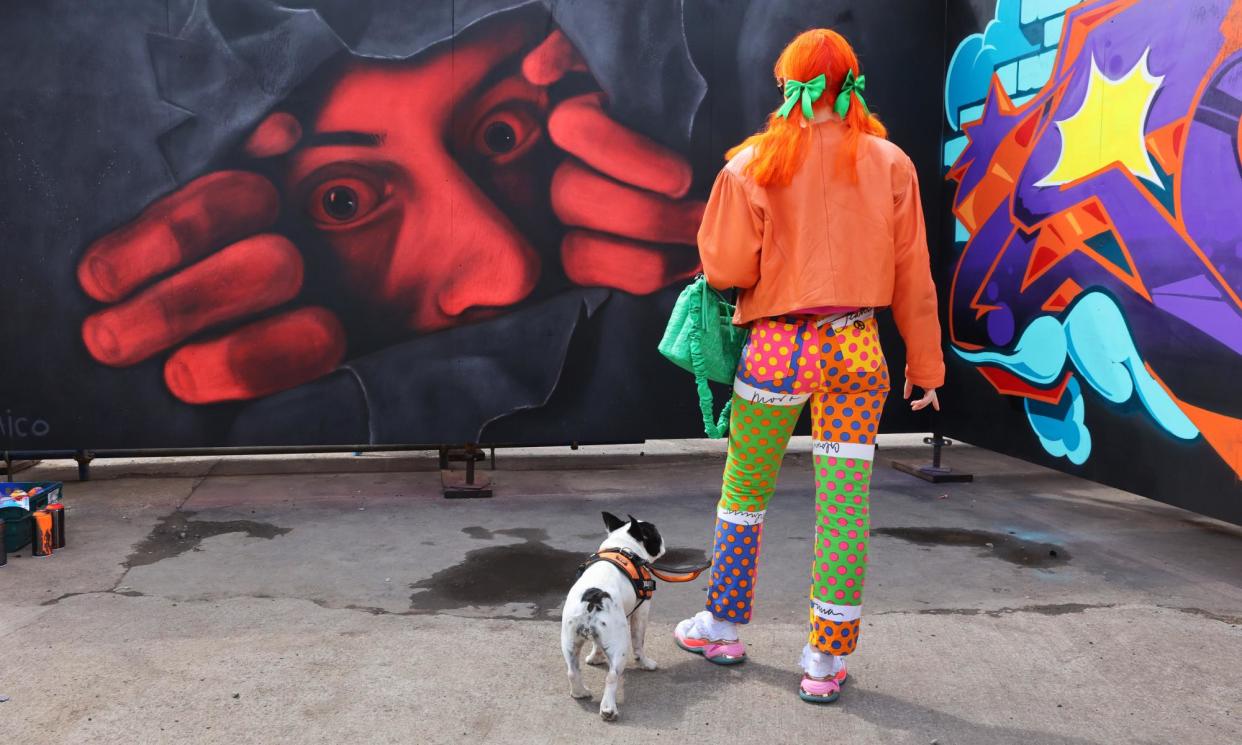Scottish arts sector appeals to ministers over ‘devastating’ budget cuts

Many of Scotland’s best known arts organisations, including the Edinburgh fringe and national jazz orchestra, are in uproar over plans for deep cuts in culture funding.
They said the proposed cuts, which came to light in the middle of the Edinburgh festival, would leave Scottish artists in crisis and cause deep damage to the country’s reputation and economy.
One hundred and eleven organisations and artists have signed an open letter to John Swinney, the first minister, Angus Robertson, the culture secretary, and Kate Forbes, the economy secretary, warning the cuts would have grave consequences for Scotland’s cultural wellbeing.
They said the government was betraying promises from the previous first minister, Humza Yousaf, that funding for Scotland’s arts sector would grow by £100m, and was rowing back on recent pledges to spend another £25m this year.
The row follows orders to the civil service from the Scottish finance secretary, Shona Robison, to freeze or cut all non-essential spending after the Treasury warned of deep reductions in public spending this year.
Scottish ministers have already begun cutting spending, including scrapping a pilot scheme that removed peak fares from all domestic rail services, in preparation for an emergency budget this autumn.
Creative Scotland, the government’s art agency, warned earlier this month that nearly £10m had suddenly been cut from its budget, including £6.6m in grant-in-aid. The agency told MSPs its budgets were experiencing “severe limitations”.
Part of that money was for an open fund worth £3m for hundreds of individual freelance artists, who will now no longer be financially supported.
The open letter, supported by the Fruitmarket and Summerhall arts centres in Edinburgh, the Traverse theatre, the Aberdeen arts centre and the DCA arts centre in Dundee, said those artists were “the heartbeat” of the cultural sector.
“Without it, many artists are left without the means to continue their work,” the letter said. “This risks sending a stark message out to the world: Scottish arts is closed for business.
“In the same month as the global spotlight is on Scotland’s vibrant cultural scene through the Edinburgh festivals, this cessation of support for local artists is particularly devastating.”
The letter said the cuts would mean Scottish artists would be absent from the international stage; venues would close; community wealth-building would be put at risk, talent would be drained from Scotland. Those cumulatively would damage Scotland’s economy.
A separate petition launched by the Campaign for the Arts said the cuts were already damaging the cultural sector and risked a catastrophe.
“Meanwhile, more than 45 of Scotland’s museums and galleries are at risk of closure within 12 months, and Edinburgh’s festivals are warning that Scotland’s cultural assets are now in a ‘perilously fragile’ state,” its petition said.
A Scottish government spokesperson said it had already increased arts funding this year, and remained committed to investing at least £100m more a year on arts and culture by 2028/29.
“The Scottish budget continues to face significant challenges. We are considering the implications of the actions announced by the chancellor [Rachel Reeves] on 29 July for our public finances, and the next steps required by the Scottish government,” he said.
Arts organisations argue that increased funding merely repaid Creative Scotland the money it had lost in earlier rounds of cuts, and to repay the money it had used from its reserves.
Lori Anderson, who is due to become director of Festivals Edinburgh in October, said arts funding was equal to 0.5% of the Scottish government’s overall spending yet delivered far greater benefits to the Scottish economy.
She said the arts had endured 15 years of standstill budgets. “It’s very disappointing that individual artists are going to be the most affected,” she said. “They’re the most vulnerable, but they’re the heart of the sector. There would be no art without artists.”


